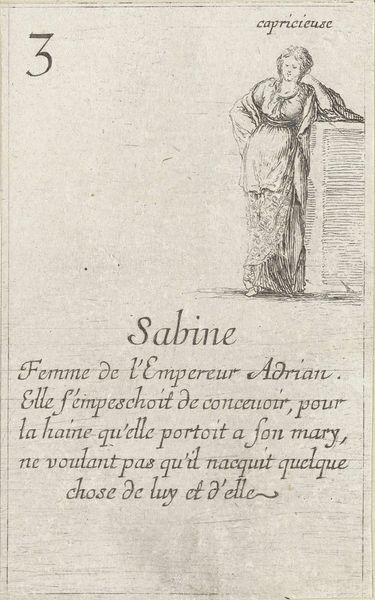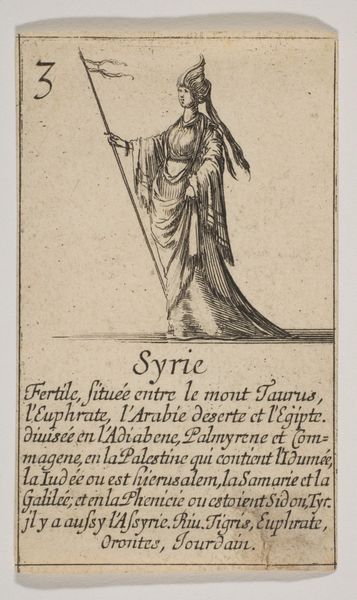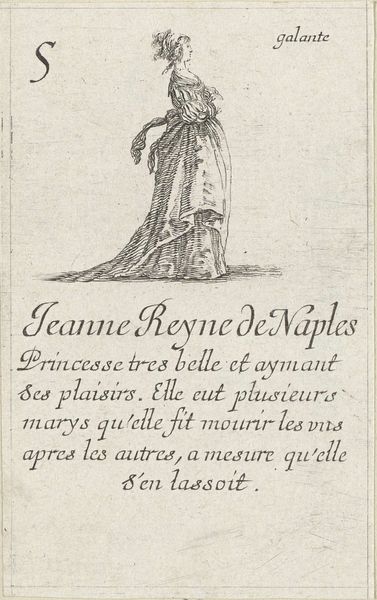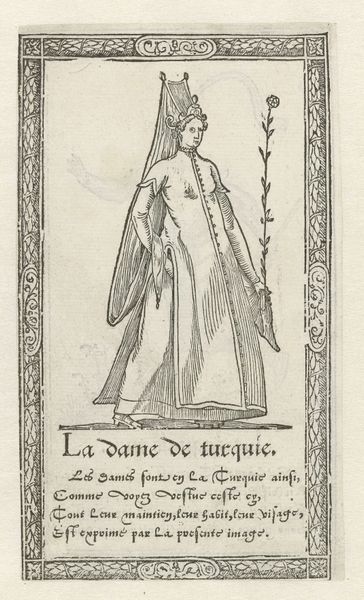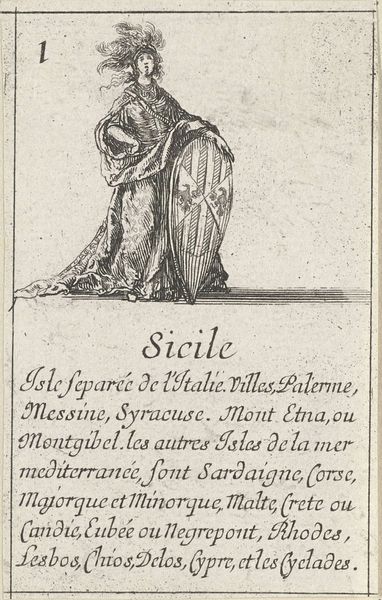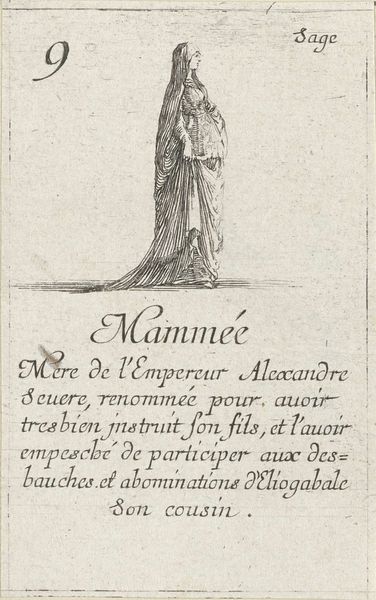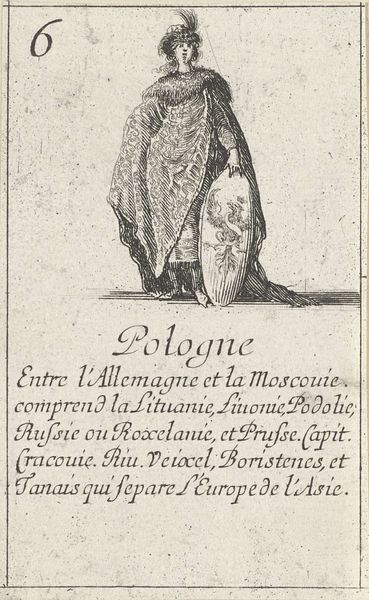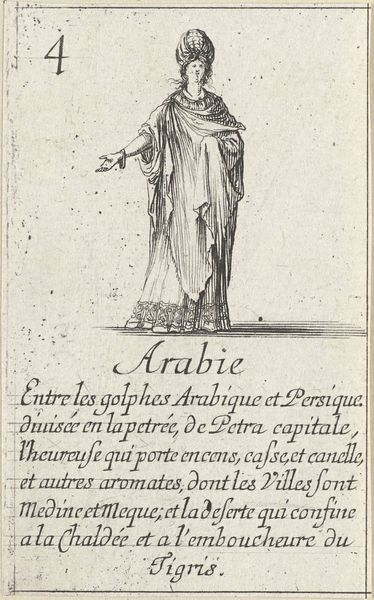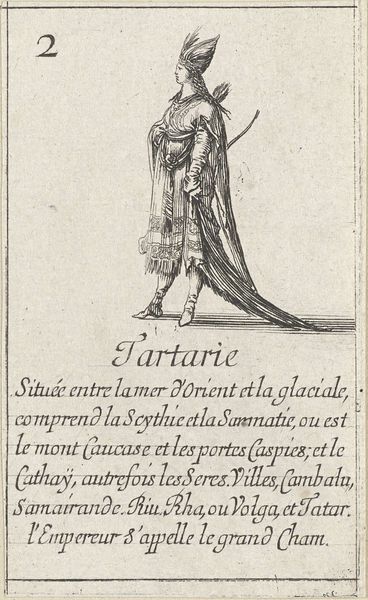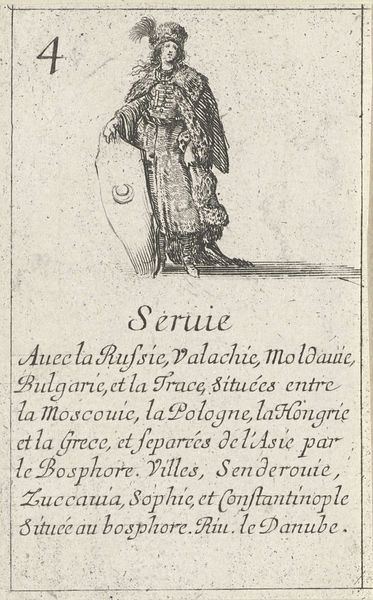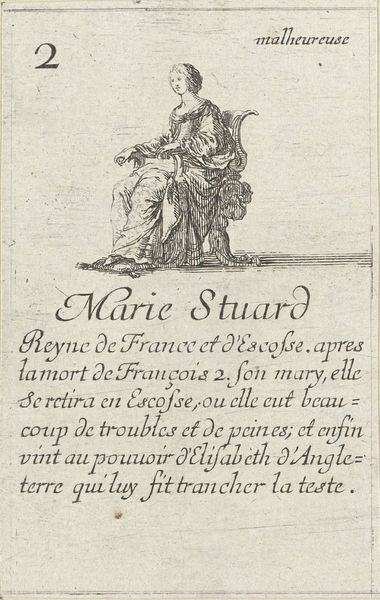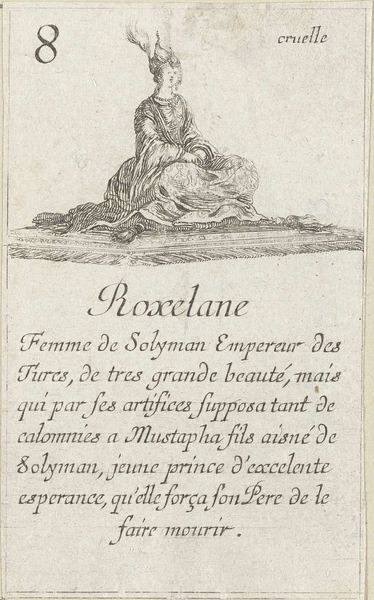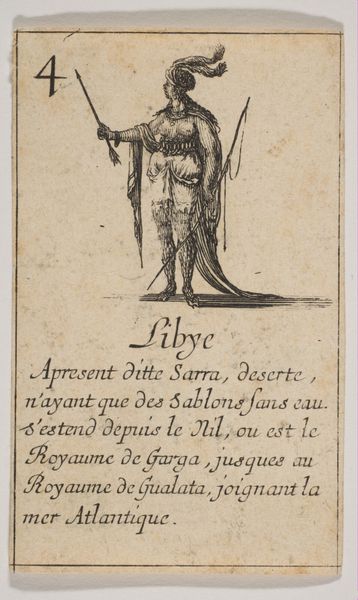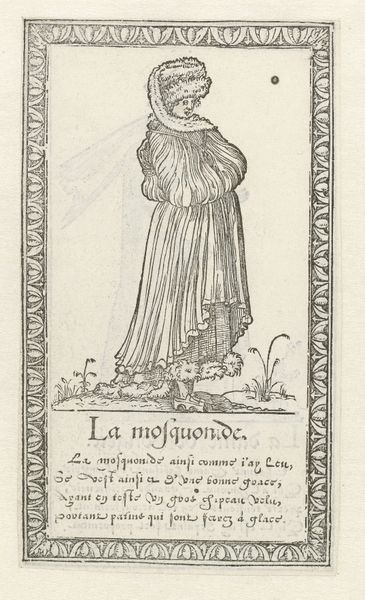
#
comic strip sketch
#
aged paper
#
old engraving style
#
sketch book
#
hand drawn type
#
personal sketchbook
#
sketchwork
#
pen work
#
sketchbook drawing
#
sketchbook art
Dimensions: height 90 mm, width 55 mm
Copyright: Rijks Museum: Open Domain
Curator: This piece, “Koningin van Seba” or “Queen of Sheba”, attributed to Stefano della Bella and created sometime between 1620 and 1664, presents an interesting look at how materials and the act of production informed societal views. Editor: It’s at the Rijksmuseum, and what strikes me immediately is how it resembles a fashion plate alongside its printed description. What's your take on this print? Curator: I see it as an intersection of material culture and labor. Consider the etching technique – a reproducible medium, making the image accessible to a wider audience. It democratizes, to some extent, the representation of royalty. What message does the choice of ink, paper, and mass production convey to you, in the context of depicting a Queen? Editor: That’s interesting. It's almost like a commentary on accessibility. Does the choice of materials imply anything about the relationship between the Queen and her...assistant? Curator: Precisely! Observe the Queen's extravagant gown and the labour implied in its making, contrasted with the servant burdened by carrying its train. How does this reflect the social hierarchies and exploitative labor practices prevalent during the time this print was produced? Editor: I see. So, it’s not just about aesthetics; the material production itself underscores the class differences being depicted. The accessibility of the print then ironically contrasts with the inaccessibility of the Queen's lifestyle. Curator: Exactly. The print’s creation, dissemination, and subject matter – all facets pointing towards social and economic structures of the period. Thinking about these points helps clarify and enrich your interpretation of art as a tangible product with deep cultural implications. Editor: I hadn't considered that, but seeing it as a product reflecting the production process definitely adds another layer to the artwork. Curator: Glad you think so.
Comments
No comments
Be the first to comment and join the conversation on the ultimate creative platform.
